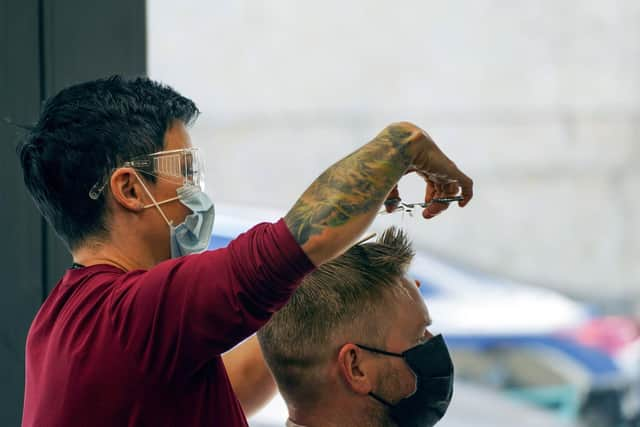Businesses want some certainty after Plan B - Beckie Hart
Firms have understood throughout the Covid pandemic that protecting public health must come first. Indeed, businesses have gone to great lengths to ensure their staff and customers have been kept safe, often at significant expense.
They knew it was the right thing to do, just as they accept lockdowns and restrictions have been necessary at different stages of the pandemic too.
There is no question that these actions have saved lives.


Advertisement
Hide AdAdvertisement
Hide AdBut what has been damaging for businesses has been the frequent oscillation between restrictions and freedom. Business leaders crave certainty, so they can plan ahead. Staffing levels, stock orders, future investment… all of these things hinge upon knowing what’s around the corner.
Fluctuating between different sets of rules from one week to the next makes these things impossible.
That is why firms will be desperately hoping that the end of Plan B is a signal that we are finally starting to turn the corner in the battle with Covid.
That we are at last moving into a new era of living alongside the virus, where we utilise the lessons we have learned so far to mitigate its impact instead of resorting to the lockdowns which are so damaging to consumer confidence and business prospects.
Advertisement
Hide AdAdvertisement
Hide AdWhat does the end of Plan B mean in practice? It means removing the requirement for vaccine passports which have been a brake on demand in sectors like hospitality and entertainment.
It means ending the mask mandate which further inhibits activity in retail too. And it means people are no longer being told to work from home.
This is a big one for our towns and cities. Because workers being present in their offices impacts more than the company they work for.
From the buses and trains they use to get to work, to the coffee shop and sandwich bar where they buy their lunch, to the chemist and newsagent they visit to carry out errands, and the pub they visit for after-work drinks – whole ecosystems of businesses and livelihoods depend on the activity driven by these workers.
Advertisement
Hide AdAdvertisement
Hide AdThat is not to say that everything will suddenly return to life as it was pre-Covid.
Far from it. Hybrid working is here to stay, and many firms were far along the road to forming their own hybrid policies long before Plan B. But there are clear benefits to spending time in the office, such as collaboration and on-the-job learning, so the blunt instrument of blanket work-from-home guidance has significant downsides for office-based firms as well as the city centre trade they bring.
As more people return to workplaces, employers will rightly be once again managing the risks to keep staff and customers safe. The tools which enable them to do this must remain readily available.
Free community testing will remain paramount for some time yet and is one of the key tools to dealing with any new variants, so the Government must commit to this beyond March.
Advertisement
Hide AdAdvertisement
Hide AdLonger-term, the need to learn to live confidently with the virus should mean prioritising the removal of interventions rather than infrastructure. In other words, we should be relying more on masks, testing, vaccines and anti-virals, rather than routinely fluctuating between normality and restrictions.
That is how, at last, we move to life beyond Covid.
Omicron has slowed the recovery, but it remains eminently achievable – if businesses are offered the certainty they need to plan for their future.
Beckie Hart is CBI regional director for Yorkshire
---
Support The Yorkshire Post and become a subscriber today.
Your subscription will help us to continue to bring quality news to the people of Yorkshire. In return, you'll see fewer ads on site, get free access to our app and receive exclusive members-only offers.
So, please - if you can - pay for our work. Just £5 per month is the starting point. If you think that which we are trying to achieve is worth more, you can pay us what you think we are worth. By doing so, you will be investing in something that is becoming increasingly rare. Independent journalism that cares less about right and left and more about right and wrong. Journalism you can trust.
Thank you
James Mitchinson
Comment Guidelines
National World encourages reader discussion on our stories. User feedback, insights and back-and-forth exchanges add a rich layer of context to reporting. Please review our Community Guidelines before commenting.